10 Most Helpful Divorce Books — Recommended By Actual Divorced Women
Getting a divorce? Check these out.
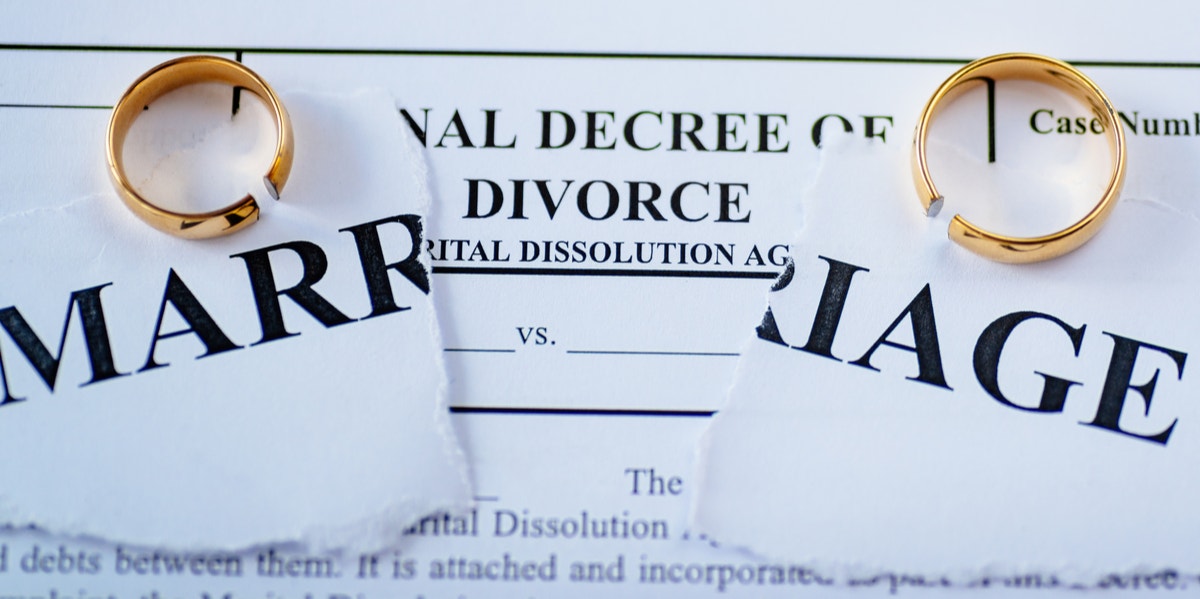 Daniel Jedzura / Shutterstock
Daniel Jedzura / Shutterstock In 2018, my husband of six years disappeared overnight while I was on a work trip, taking half our belongings and my cat with him.
Suddenly, without notice or preparation, I was getting divorced.
Whether you’re thrust into it unexpectedly or see it coming for years, divorce is a difficult process and a struggle to get through.
Reading books helps — these ten are some of the best lesser-known books to read, as recommended by writers and divorcees:
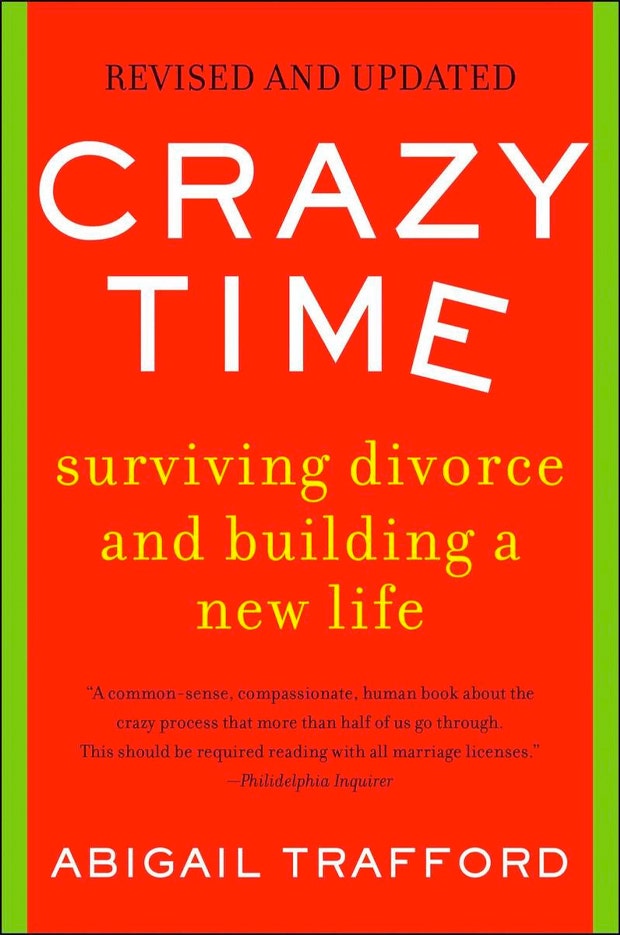
1. Crazy Time: Surviving Divorce and Building a New Life by Abigail Trafford
As anyone who’s going through a divorce can attest, it is indeed a “crazy time.” Trafford breaks down the process and the emotional phases you’ll go through. She includes not only information from her own experience, but also from hundreds of interviews with people who’ve been divorced.
“My husband walked out on me after barely two years of marriage and remarried within the year to a colleague. I had left my country/career/family to follow him to the U.S. It was horrible. I had no family support, financial or emotional. [Trafford’s] book was smart, sane, compassionate, and practical.
No one who has not yet been divorced, certainly anyone whose marriage implodes with little distinct warning, can grasp how disorienting it is — and we had no kids. I've recommended it many times to others in the situation.”
—Caitlin Kelly, journalist and writing coach
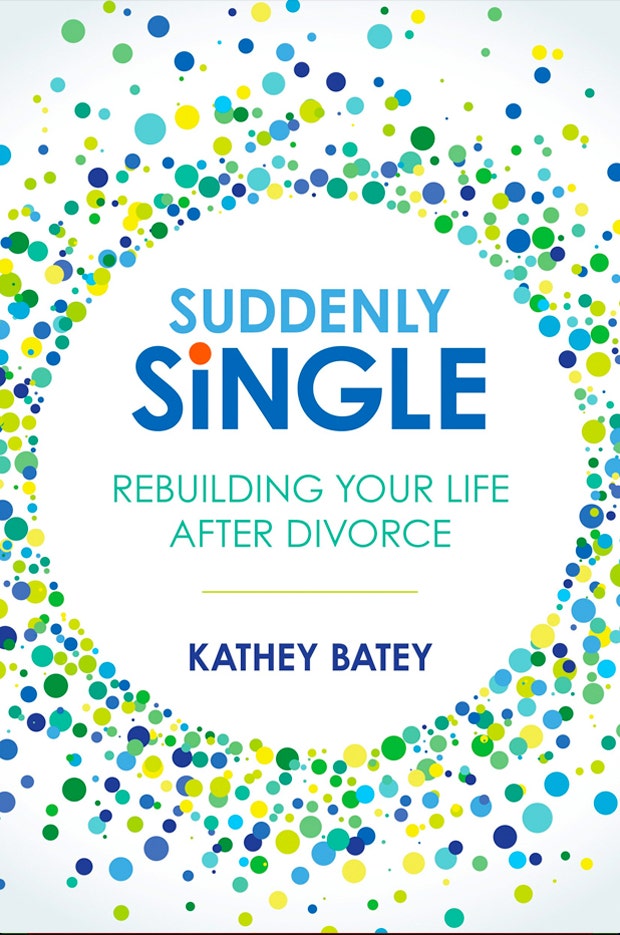
2. Suddenly Single: Rebuilding Your Life after Divorce by Kathey Batey
Kathey Batey’s book is an essential read for anyone who, like me, was married for years and suddenly left. It goes through the nuts and bolts of what you need to do and then pushes you to remember that your own wellbeing is a top priority.
“The book is written from a point of view of being married a long time and then suddenly being left. That was not my experience personally; my marriage was short, but I was blindsided. That being said, the author combs through literally every aspect of dissolving a marriage and what to expect during the process all while reminding you (the reader) that you are going through something traumatic and it is okay and even expected for you to be in mourning.
It is encouraging like a friend would be, reminding you to take care of yourself first, especially your mental health, and that no two people will react the same. It even gives suggestions of hobbies and things to do to keep busy and goes through the different stages of grief or types of healing you may experience.
Even though it wasn’t completely relevant to my situation (that book doesn’t exist because I haven’t written it yet, ha!) it still was helpful in many ways. It reminded me honestly it could be worse, and I would be fine and better off in the end.”
—Kelly Blanchette, avid reader
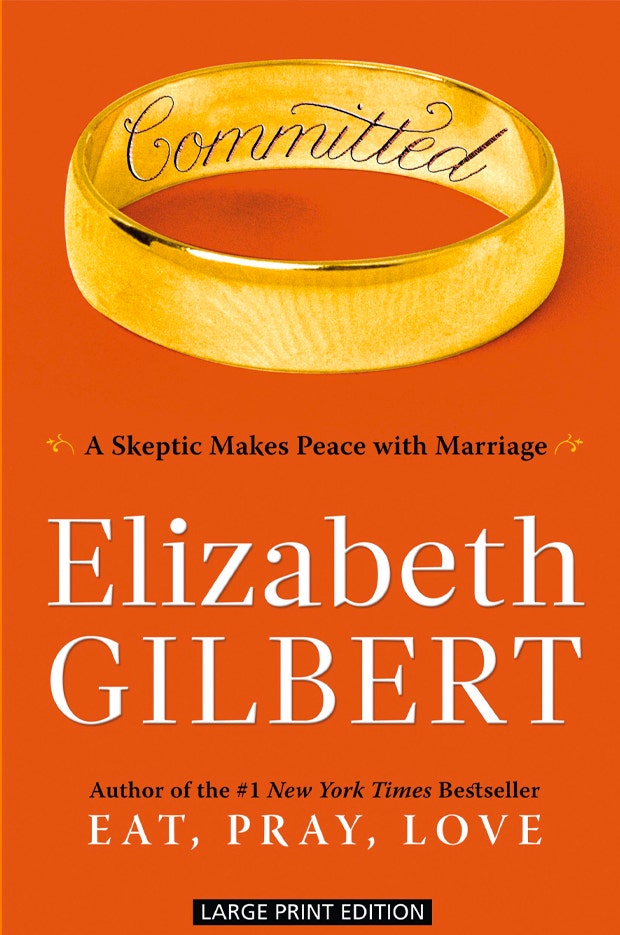
3. Committed by Elizabeth Gilbert
From the author of the number-one bestseller Eat, Pray, Love, Committed follows Elizabeth Gilbert’s journey after her epic trip and into her next marriage. But although it’s a book about marriage, the text delves into a lot about past relationships, divorce, and the problems in some relationships.
“It’s about marital commitment through the eyes of feminine identity, cultural expectations of women in marriage, and the dilemma of commitment after divorce, but it helped me deconstruct the failures of my marriage that were more mine to own than I thought. It was a powerful read as I was in the process of choosing to leave.”
—Sally Vardaman Johnson, writer and producer
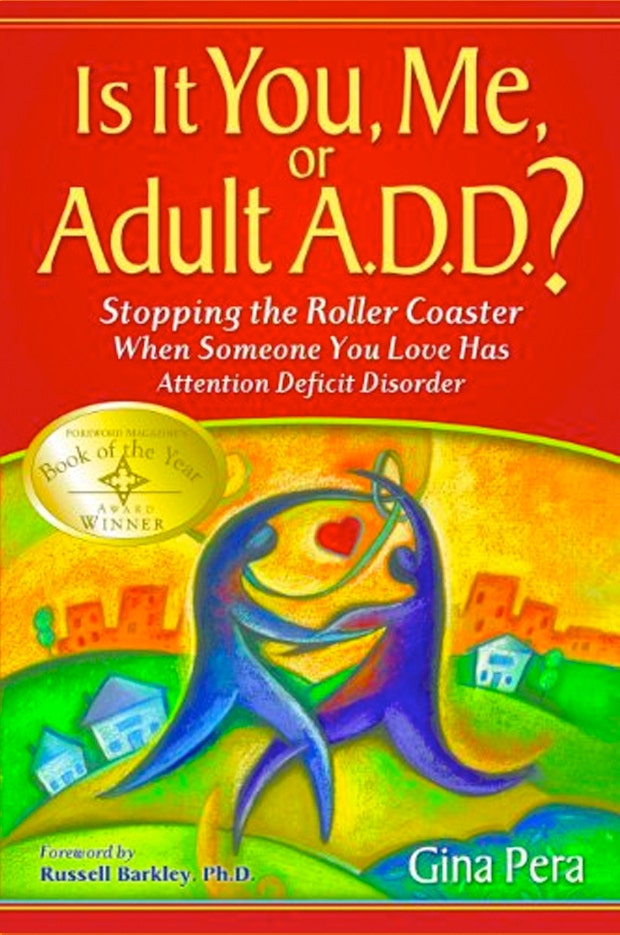
4. Is It You, Me, or Adult A.D.D.: Stopping the Roller Coaster When Someone You Love Has Attention Deficit Disorder by Gina Pera
If you find your coupled life was particularly difficult and you just can’t figure out why, give this book a read. It’s hyper-focused on adult ADD and brings to light many symptoms that can be easily misunderstood, especially in the relationship setting.
“[It’s] perhaps a severely less-common choice and specific to only some of the population, but this book was probably the only one that actually helped/made sense. While it definitely was only a small piece of the puzzle, this book helped me realize that SOOOOO many things that I got yelled at for, accused of, and degraded for were likely things that were either highly misunderstood (by him and me) or were a part of my ADHD that I feel like he thought I was doing on purpose.
It also taught me one of my favorite terms and the very useful concept of ‘time optimism’ (essentially what Katie’s brain thinks will be quick and easy and will only take 15 minutes to do will in actuality take me more like 3 to 4 hours to complete with all of the bumps and detours and backroads in my brain that were traveled to get there).
In reality, I had zero clues and was generally oblivious to the fact that I had even done something that was wrong when viewing life from a neurotypical (or somewhat neurotypical) perspective. While this book wasn’t exactly me to a T, it was helpful for me to move forward and feel a little more validated in how I felt at the time when everything fell apart. It also helped me be more aware of certain tendencies moving forward with new relationships.”
—Katie Nielsen Corradino, physical therapist
RELATED: 10 Main Reasons Why Divorce Is So Common These Days
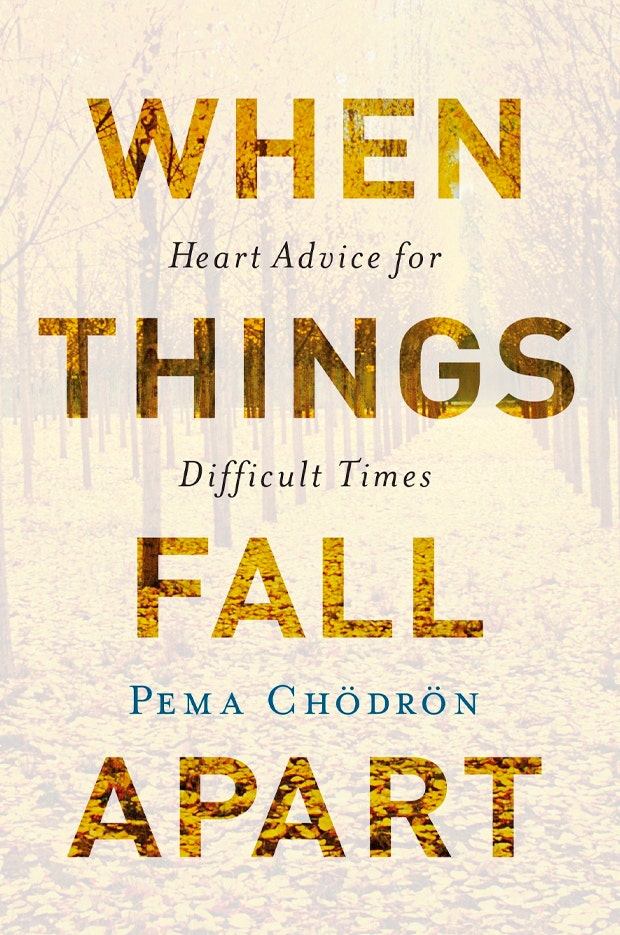
5. When Things Fall Apart: Heart Advice for Difficult Times by Pema Chodron
In this book, Chodron embraces a Buddhist mentality, encouraging people to lean into their suffering as a way to open their hearts. It’s not just about divorce, but the lessons you will learn reach past the specific trauma to be helpful overall.
“I really enjoyed reading Pema Chodron’s When Things Fall Apart: Heart Advice for Difficult Times because she takes a very mindful, spiritual approach to healing.
The ideas are rooted in psychology and teach us to feel the pain, but never judge, and move through the emotions so we can fully process difficult situations and grow forward with acceptance and knowledge.”
—Angela Tague, journalist
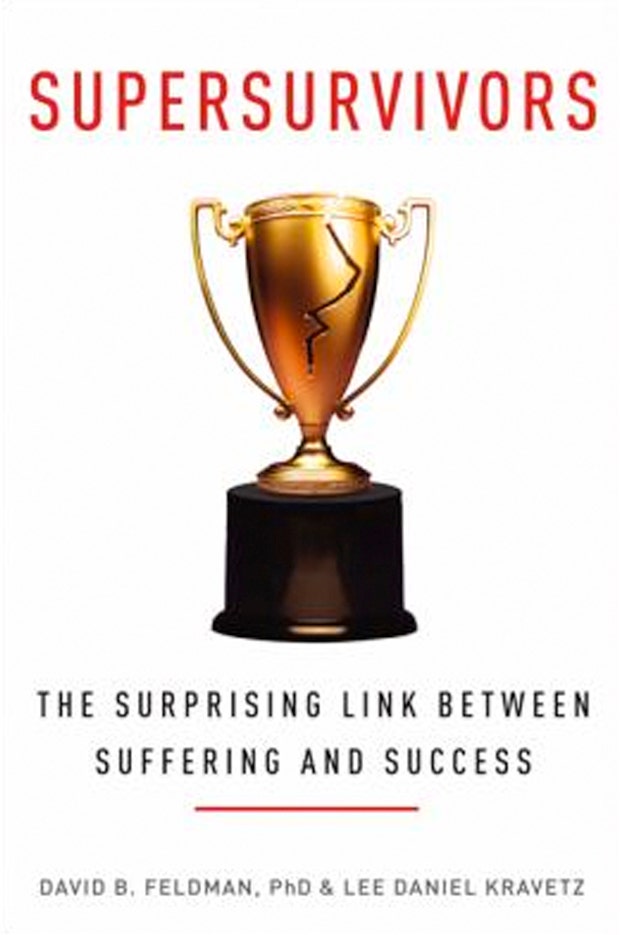
6. Supersurvivors: The Surprising Link Between Suffering and Success by David B. Feldman and Lee Daniel Kravetz
Written by two psychologists, this book explores a phenomenon often undiscussed after trauma: when someone “bounces forward,” or pushes past traumatic events like divorce to become even better and more successful. Give yourself a post-tragedy confidence boost with this read.
“During my divorce, I felt like a failure. I felt embarrassed and worried about what to tell people. I read books like a lifeline to the future. I wanted something to make me feel better. I told everyone I was living in CrazyTown and I could not stop crying. When I read David Feldman and Lee Daniel Kravetz’s book Supersurvivors: The Surprising Link Between Suffering and Success, I was shocked to learn that “the disorientation and groundlessness experienced by many people after trauma can ultimately be advantageous.”
I figured that my post-traumatic growth was going to be superb since I had leaned in so hard to my feelings I had dug underground. A huge shift for me was when I read this: “Forgiveness is giving up the hope that the past could be any different. … Forgiveness means breaking the psychological ties that bind you to the past, giving up the quest to change what has already happened. … Rather than dwelling on the past, she found herself asking the hopeful and forward-looking question ‘What now?’”
I was stuck in a loop in my head that said, “If only I had never met him.” Once I read that part of the book, I remembered that you cannot drive into the future if you only look through the rear-view mirror.”
—Lisa Niver, journalist
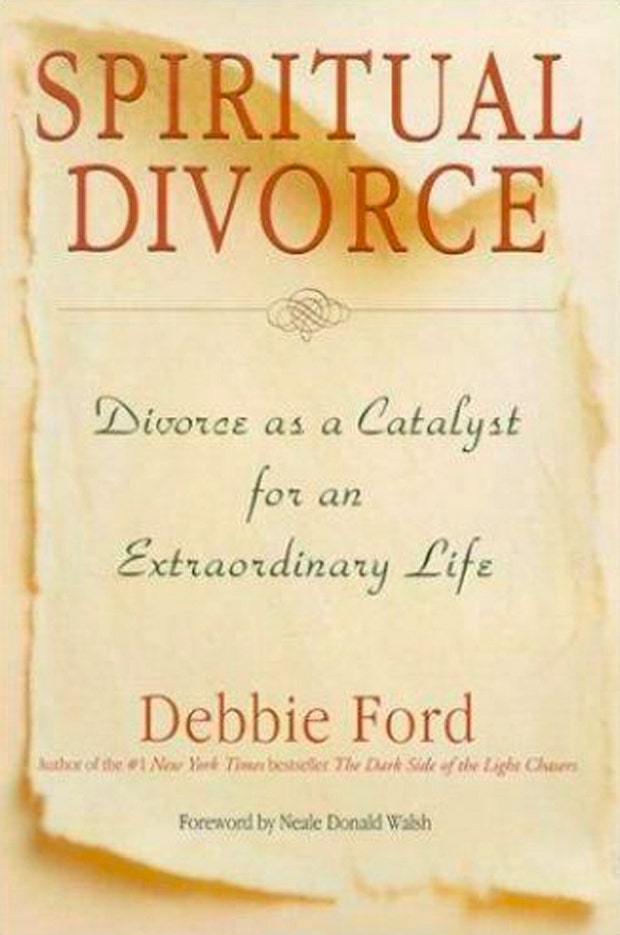
7. Spiritual Divorce: Divorce as a Catalyst for an Extraordinary Life by Debbie Ford
Divorce isn’t just an end — it’s also a beginning. In this book, Debbie Ford shows us exactly how and explains ways we can use the trauma of divorce as a path forward into a new and better life.
“Spiritual Divorce helped me use the pain of my relationship ending to grow as a human being. I’ve found that we have the opportunity to grow the most when we are in pain. I’m grateful for joy but growth has mostly come for me when I’m trying to make sense of loss, and what part I may have played.
My relationship ending was gut-wrenching but at some point, I knew I had to let go, accept, and move on; or succumb to anger and feeling victimized. Spiritual Divorce guided me to experience my relationship ending as both sad and as an opportunity to grow into a more emotionally aware human, so I’m better prepared for deep intimacy in my next relationship.”
—Rebecca Hendrix, therapist specializing in relationship issues
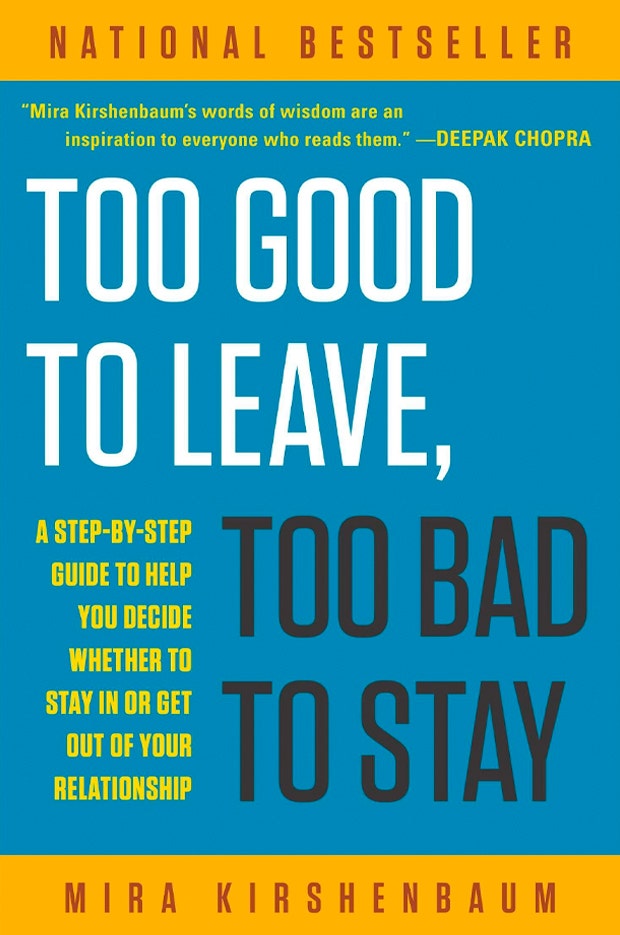
8. Too Good to Leave, Too Bad to Stay: A Step-by-Step Guide to Help You Decide Whether to Stay In or Get Out of Your Relationship by Mira Kirshenbaum
Are you done wondering if you can try to fix your relationship? Use this book to make the ultimate decision: should you stay or should you go. And if you’ve already ended your marriage, read this to bolster your self-esteem and reinforce the knowledge that you made the right choice.
“A friend recommended this book for me when I was evaluating my marriage and whether or not to stay in it. It was very helpful, in a few ways. First, the book tackles common marital problems one by one, from abuse or infidelity to boredom or a lack of respect or disagreements on whether or not to have children. If you are focusing on a specific problem, you can just read about it and avoid being overwhelmed.
And if you’re not quite sure what the problem is yet, or how to name it, it’s helpful to have them laid out distinctly, in my experience. With each problem or situation, the author talks about how this could be fixed if that’s the desire, or how likely it is that it CAN be fixed. In a lot of cases, many couples do come back from big or small issues in their marriage. In some other cases, like abuse or contempt, it just doesn’t often happen.
I found it helpful to have that kind of clear-minded look at how realistic it was that something could be solved—it doesn’t mean you have to decide to solve it or to not solve it, but you get a sense of what you’re up against or where you might start to work on things. And emotionally, it’s just helpful sometimes to have an outside source say ‘This is bad, and you don’t have to stay.’ It can be hard to get that clarity when you’re in the middle of it, or feeling unsure of where to go next.” —National journalist (name withheld for privacy)
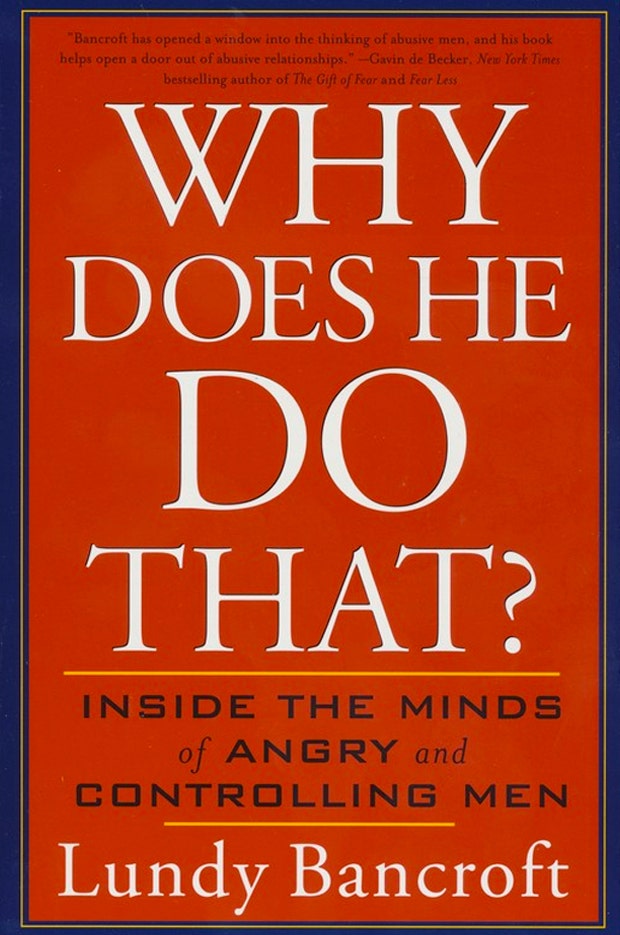
9. Why Does He Do That?: Inside the Minds of Angry and Controlling Men by Lundy Bancroft
If you think you’re in an abusive relationship—whether emotional, verbal, physical or another form—this is the book for you. It looks into why angry and controlling partners do what they do, and explores the different ways to deal and survive. And eventually, it helps you escape.
“My marriage was difficult from the start. I read just about every relationship book I could get my hands on. My ex … did not. Most of what I read was Christian relationship literature. None of the books seemed to describe what was happening in our relationship. They only worked if both of us were working on the relationship, and I didn’t feel like he cared at all. The books I read encouraged me to keep trying different tricks to fix the marriage on my own anyway.
I remember the last relationship book I bothered reading before my divorce, Sacred Marriage by Gary Thomas. It told me my marriage was hard because God cared about my holiness more than my happiness. It made me so mad and frustrated I threw it across the room.
After 13 years of trying, realizing that book wasn’t for me was one of many things that told me it was over. It wasn’t until several years after my divorce that I started discovering books that described the kind of dysfunction I had experienced in my marriage. Why Does He Do That?: Inside the Minds of Angry and Controlling Men by Lundy Bancroft has been particularly helpful.
There’s a pattern of behavior that is so obvious once you know about it. I understand what happened in my marriage, now. I’ve found healing for myself, and I’ve been able to steer clear of falling back into the same situation again. I’m glad to see that there’s an increasing body of literature that acknowledges that there are marriages where both spouses aren’t necessarily operating in good faith, even in marriages between two professing Christians.
If you haven’t experienced it, you may think it would be obvious when you’re being abused. It’s not. The mind game where you learn to blame yourself for the dysfunction is part of the abuse. It’s important to have books that help people identify and navigate their way out of unhealthy marriages.” —Amy Farnham, writer
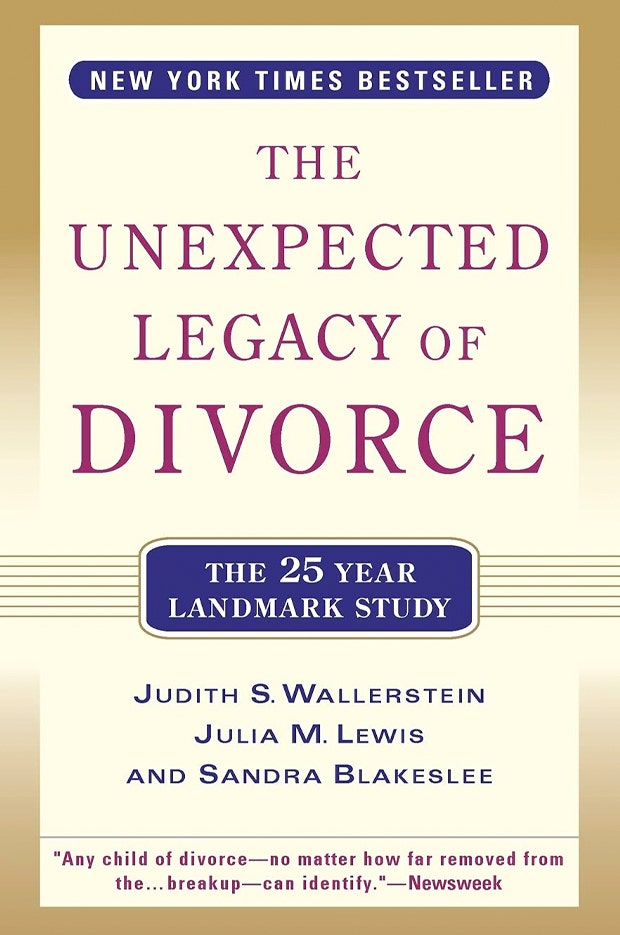
10. The Unexpected Legacy of Divorce: The 25 Year Landmark Study by Judith S. Wallerstein, Julia M. Lewis, and Sandra Blakeslee
In this book, Judith Wallerstein followed up on a study she began 25 years earlier — one that investigated the effect divorce had on children. Wallerstein reconnected with the children she started the study with, to do a 25-year check-in on how they feel divorce impacted their views on relationships as adults. It’s a must-read for those contemplating divorce who have children.
“This recent opinion piece by Joyce Maynard in The New York Times was influential for me, in terms of reconciling lingering doubts about my divorce. Just two weeks ago, I recognized the 20th anniversary of when I left my husband—with my twins who were not quite two years old.
I spent some time healing some of the old scripts I had about that moment — why I had to leave, whether there was lingering damage to me and/or the twins (yes), and yet how resilient we are. In Maynard's piece, she mentions Dr. Judith Wallerstein's The Unexpected Legacy of Divorce, which was highly impactful to me in making my decision to leave the marriage when the twins were two.
—Carolyn Flynn, author
RELATED: I Was Mortified To Get Divorced In My 20s (And 6 Ways I Got Over It)
Jennifer Billock is an award-winning writer and best-selling author. She's been published in The New York Times, Smithsonian, Wired, and National Geographic Traveler. Follow her on Twitter.
YourTango may earn an affiliate commission if you buy something through links featured in this article.

